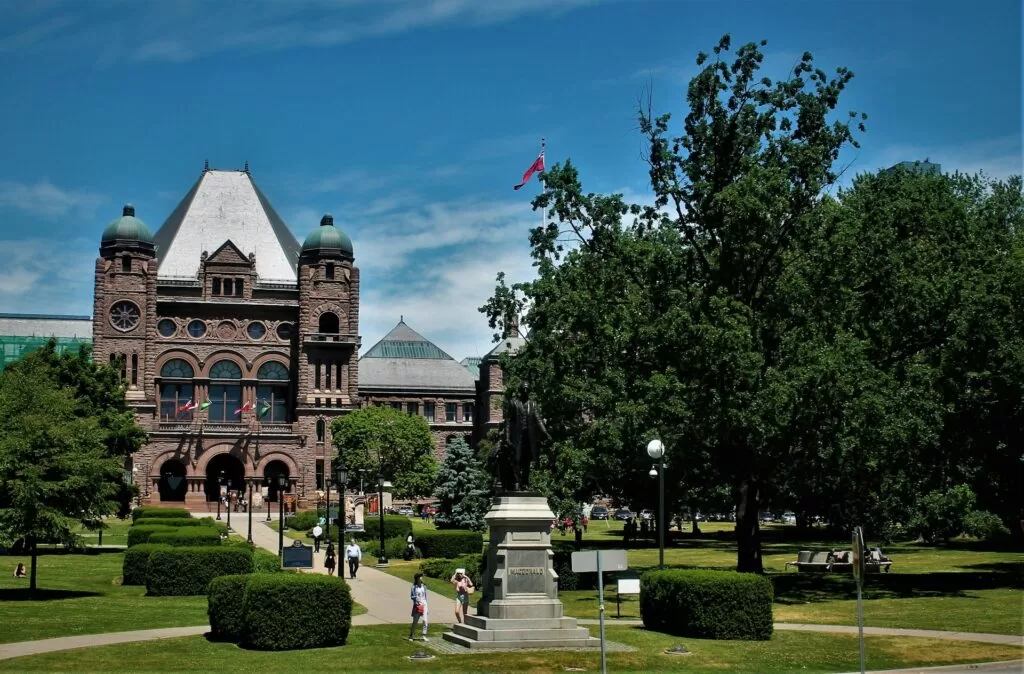Happy Eco News Most Sustainable University Title Goes to U of T Again
Reading Time: 3 minutes
Through innovative programs and substantial investments, the most sustainable university demonstrates leadership in environmental education and campus operations.
The University of Toronto (U of T) has strengthened its position as the world’s most sustainable university, claiming the top spot for the second consecutive year. The 2025 QS World University Rankings: Sustainability evaluated over 1,700 universities across 95 countries, with U of T emerging as the global leader in sustainable education and environmental stewardship.
Students have played a vital role in the most sustainable university achievement. The U of T Sustainability Coalition, led by environmental science students, has helped transform campus life through daily sustainable practices and innovative initiatives. Their efforts have contributed significantly to the university’s continued recognition as a global leader in sustainability.
The comprehensive ranking system examines three key areas: environmental impact, social impact, and governance. U of T ranked fifth worldwide in environmental impact, which evaluates teaching, research, and campus operations. The university achieved first place globally in social impact, reflecting its success in job preparation, equality promotion, and community engagement. In governance, which measures student representation and financial transparency, U of T tied for 23rd place.
Canada’s leadership in campus sustainability extends beyond U of T. The University of British Columbia tied for fifth place with University College London, making Canada the only country with two universities in the top five. McGill University (15th) and Western University (30th) also demonstrated strong performance, highlighting Canada’s commitment to environmental education.
U of T’s commitment to sustainability takes concrete form through multiple initiatives. Project Leap, a $138 million investment, aims to cut pollution on the main campus in half by 2027. The project includes advanced heating and cooling systems, improved building insulation, and smart energy monitoring technology across campus.
Each of U of T’s three campuses contributes uniquely to the university’s environmental goals. The Mississauga campus is transitioning from natural gas to electricity through Project SHIFT. At Scarborough, new energy-efficient buildings complement renovated historical structures, demonstrating how heritage preservation can align with environmental responsibility.
The university’s sustainability office emphasizes that maintaining the top position is only part of its mission. Their broader goal involves setting new standards for environmental leadership in higher education and inspiring other institutions to pursue ambitious sustainability targets.
The university’s influence extends throughout Toronto and beyond. U of T actively supports the city’s Green Will Initiative, helping building owners reduce energy consumption. The university’s Grid Modernization Centre tests innovative solutions for electrical systems, bringing together students, researchers, and businesses to address Canada’s energy challenges.

Recent developments have further strengthened U of T’s environmental leadership position. The university has established a new Environmental Technology Accelerator program, which helps students and researchers transform innovative ideas into practical solutions. This initiative has already launched twelve start-ups focused on renewable energy and waste reduction. Additionally, U of T has created partnerships with local Indigenous communities to incorporate traditional ecological knowledge into its environmental programs and campus planning decisions.
The university has also expanded its sustainable transportation initiatives. A new bike-sharing system connects all three campuses, while electric shuttle buses have replaced traditional diesel vehicles for inter-campus travel. These improvements have reduced the university’s transportation-related emissions by 45% compared to 2019 levels.
Student engagement plays a crucial role in U of T’s environmental leadership. Over 2,000 undergraduate courses now incorporate sustainability topics, a dramatic increase from just 500 courses in 2020. The Sustainability Pathways program enables students from all disciplines to explore environmental issues, while the Campus as a Living Lab program provides hands-on experience with real-world sustainability projects.
See also: McGill University Divests Fossil Fuel Holdings
Looking ahead, U of T has outlined ambitious goals. By 2026, all new campus buildings must meet net-zero energy standards. The university will complete its fossil fuel divestment by 2027 and aims to achieve carbon neutrality across all campuses by 2030. The upcoming Sustainability Innovation Hub, opening in fall 2025, will provide dedicated space for environmental research and innovation.
The university’s progress is measurable and significant. Campus energy consumption has dropped 35% since 2019, while student participation in environmental initiatives has increased by 180%. U of T leads several international sustainability networks, including the U7+ Alliance of World Universities, sharing knowledge and best practices globally.
Through its comprehensive approach to sustainability, U of T continues to demonstrate how academic institutions can address environmental challenges while preparing students for future leadership roles. The university’s success in maintaining its position as the world’s most sustainable university reflects both its current achievements and its ongoing commitment to environmental progress.
The post Most Sustainable University Title Goes to U of T Again appeared first on Happy Eco News.
